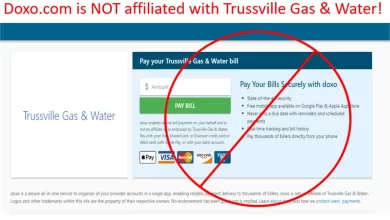Care Credit Accepted Everything You Need to Know
Are you in need of medical or dental care but can’t afford the upfront costs? Fortunately, many healthcare providers offer financing options for those who need it, and one of the most popular options is Care Credit. In this article, we’ll discuss everything you need to know about Care Credit, including what it is, how it works, and where it’s accepted.
What is Care Credit?
Care Credit is a type of credit card designed specifically for medical expenses. It can be used to pay for a variety of healthcare services, including dental treatments, cosmetic procedures, veterinary care, and more. The card is issued by Synchrony Bank and can be used at over 240,000 participating healthcare providers across the United States.
How Does Care Credit Work?
When you apply for Care Credit, you’ll need to provide some basic information about yourself, including your name, address, and social security number. You’ll also need to provide information about the healthcare provider you plan to use, including their name and address. Once you’re approved for the card, you can use it to pay for any eligible healthcare expenses up to your credit limit.
One of the benefits of using Care Credit is that many providers offer promotional financing options, such as interest-free periods for a certain number of months. This can be a great option if you need expensive medical or dental treatment but don’t have the funds to pay for it upfront.
Where is Care Credit Accepted?
Care Credit is accepted at over 240,000 healthcare providers across the United States, including dentists, optometrists, veterinarians, and more. You can easily search for participating providers on the Care Credit website, making it easy to find a provider near you.
Benefits of Using Care Credit
Using Care Credit has a number of benefits, including:
- Flexible repayment options: With Care Credit, you have the option to choose a repayment plan that works for your budget. You can choose from a variety of repayment periods, ranging from six to 60 months, depending on the amount you owe.
- Interest-free financing: Many healthcare providers offer promotional financing options with Care Credit, including interest-free periods for a certain number of months. This can be a great way to finance expensive medical or dental treatments without incurring additional interest charges.
- Easy to use: Care Credit is easy to use and can be used just like any other credit card. Simply present your card to the healthcare provider when it’s time to pay for your treatment.
Risks of Using Care Credit
While Care Credit can be a great option for financing healthcare expenses, there are some risks to be aware of, including:
- High interest rates: If you don’t pay off your balance within the promotional period, you could be subject to high interest rates, which can add up quickly.
- Late payment fees: If you miss a payment or don’t pay the minimum amount due, you’ll be charged a late payment fee, which can also add up over time.
- Limited acceptance: While Care Credit is accepted at many healthcare providers across the United States, it may not be accepted at every provider. Make sure to check with your provider before applying for the card to ensure that it’s accepted.
How to Apply for Care Credit
If you’re interested in applying for Care Credit, you can do so online or by phone. To apply online, simply visit the Care Credit website and fill out the application form. You’ll need to provide some basic information about yourself, including your name, address, and social security number, as well as information about the healthcare provider you plan to use.
If you prefer to apply by phone, you can call the Care Credit customer service line and apply over the phone. Once you’ve been approved for the card, you can start using it to pay for eligible healthcare expenses.
Conclusion
Care Credit is a great option for financing medical and dental expenses, offering flexible repayment options and promotional financing options to help make healthcare more affordable. While there are some risks to be aware of, such as high interest rates and late payment fees, the benefits of using Care Credit often outweigh the risks. If you’re in need of healthcare but can’t afford the upfront costs, consider applying for Care Credit today.

